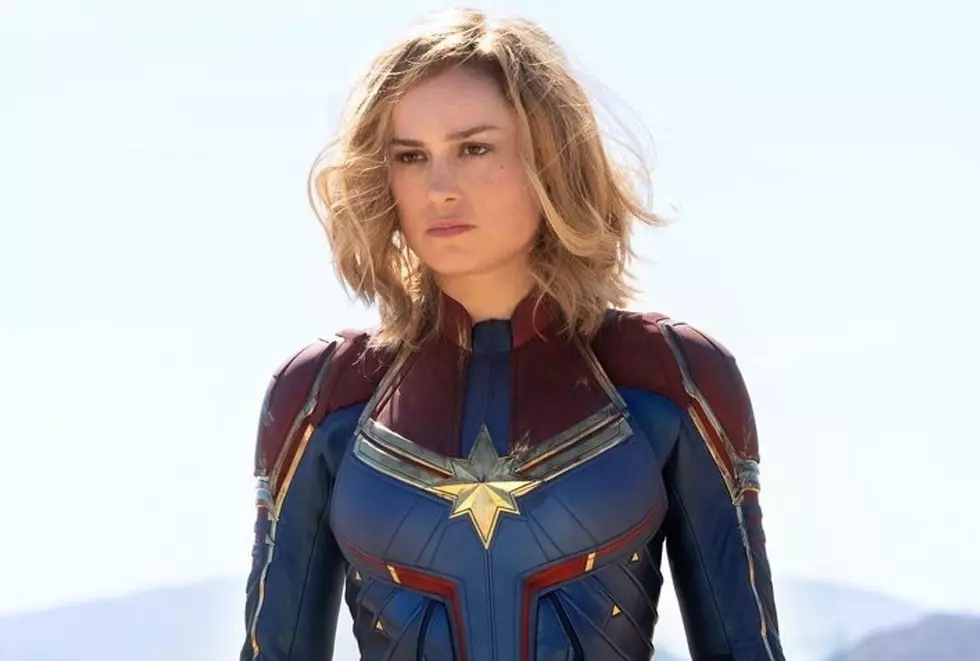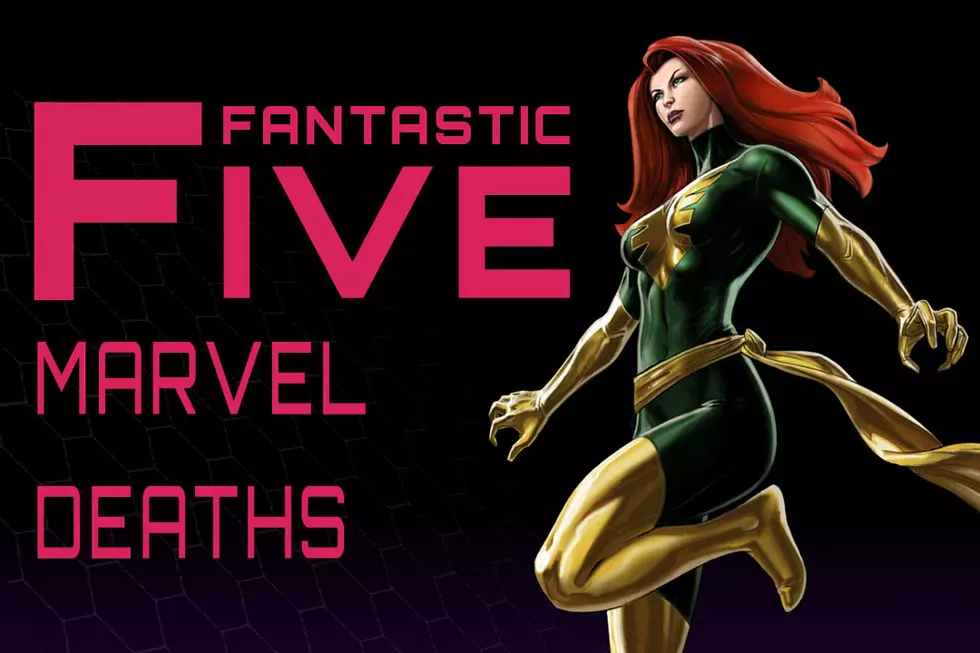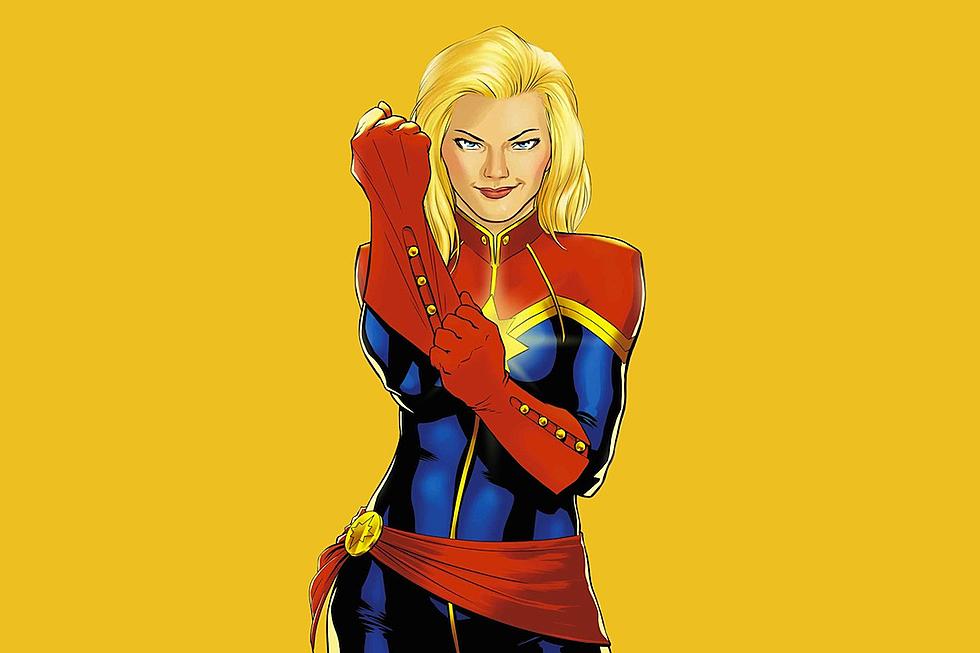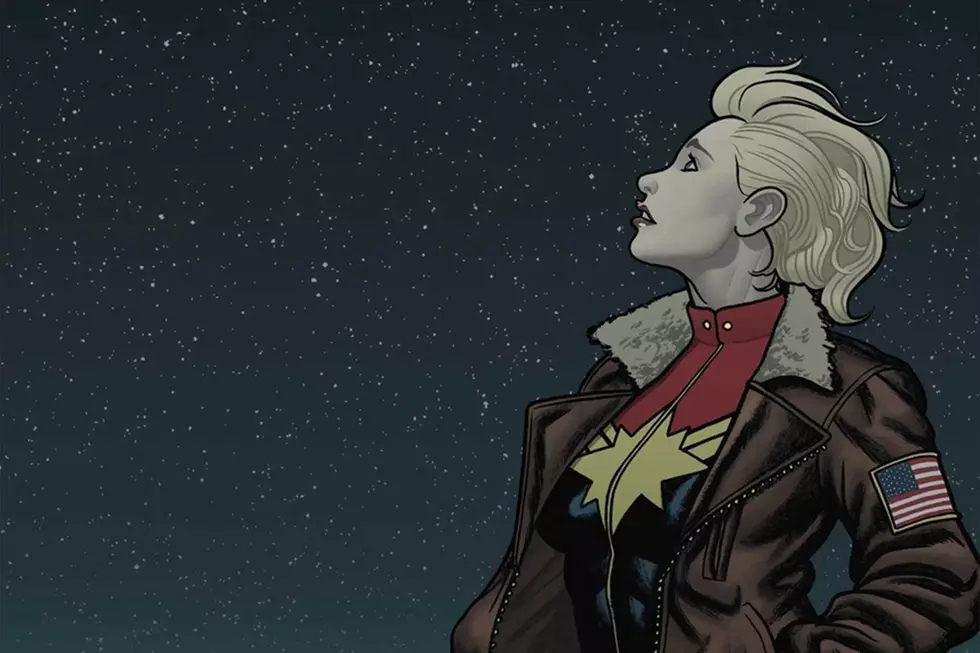
What Does A Number One Issue Mean?
I was pleasantly surprised by just how much pure comics news came out of New York Comic Con this year. It really felt like a show that seemed to revolve around comics (I say as an online observer who didn't attend). Even the panels about non-comics stuff, for example, the Batman: Arkham Origins panel, included moments like readings from The Killing Joke.
As for the comics news itself, well, it was more of a mixed bag. On the one hand, a ton of new series with tons of potential got announced. On the other, we had announcements like the one about Captain Marvel, a book that's only been coming out for about 15 months, restarting with a new number one issue. I'm more than pleased that Captain Marvel will continue. But that odd announcement--and the fact that nearly every other announcement was about a new first issue of a series--got me thinking about what a number-one issue of a comic even means anymore.
A first issue is something that clearly still has currency with comics fans. Look at the sales charts any given month and you'll see a slew of number ones in the top 25. But I wonder how much of that is genuine interest in the new -- because, let's face it, a lot of first issues don't give us anything new, they just slather something we've seen before with a new coat of paint -- and how much of it is an almost Pavlovian response. People know full well that, with the exception of The Walking Dead that comes around once in a blue moon, number-one issues don't really have any value as an investment. They might retain their cover price. But, almost like a reflex, people keep buying them like they're going to be the next Amazing Fantasy #15, which wasn't even a number-one.
I blame the '90s. That decade was the birthing ground for a lot of bad habits comics publishers, creators and fans have yet to fully get over, maybe the biggest of which is speculative buying. Number-one issues still get published with big red ones on the covers surrounded by decorative sunbursts. Fans buy them up. It's like we want to keep believing the lie that the number imbues monetary value of any consequence.
Publishers have a good reason for perpetuating the myth of the first issue: they're doing whatever they can to get readers' attention. DC restarting every series in its line with a new number one wasn't just the biggest comics-publisher stunt of the decade; it was a stunt that worked, at least for a few months. Marvel NOW's wave of number-one issues has been so successful that there's been a second, third and fourth wave.
When it comes right down to it, a number-one issue doesn't signify the beginning of a new concept or even a bold new direction. Captain Marvel is coming back with a new number one with the same writer on-hand and likely a similar rotating team of artists. At best, the new series will be tweaked to be more cosmic in its focus. The best way to interpret the number one on a comic cover is, "Hey! Pay attention!"
It's been nigh impossible for ongoing superhero comics to get over their reputation for being difficult to jump into mid-stream, even with all the "Brand new storyline!" and "A new era begins HERE" cover blurbs on Earth. Living in a time where the pilot episode of virtually every TV series is available somewhere to stream probably doesn't help with that problem. People want to start things at the beginning. So what we've got is a glut of beginnings.
Maybe comics have outgrown the "ongoing series" as we know it. Outside of organizing back issues and reciting minutiae, issue numbers reaching up into the 900s don't really mean much, particularly now that digital comics are a factor in the mix, and more often than not, the numbers just serve to confuse.
Would it really be so bad to break a comics series up into seasons, like TV does it, and tell readers in a clear way, "Hey, this is where you start"? I'd be more than happy if the number one stopped meaning "collector's item" and started meaning "starting point."
That's unofficially what it is, anyway. We just have to agree to stop believing anything different.
More From ComicsAlliance





![Soar Around The Globe With ‘The Mighty Captain Marvel’ #1 [Preview]](http://townsquare.media/site/622/files/2016/12/The_Mighty_Captain_Marvel_1_Featured.jpg?w=980&q=75)



